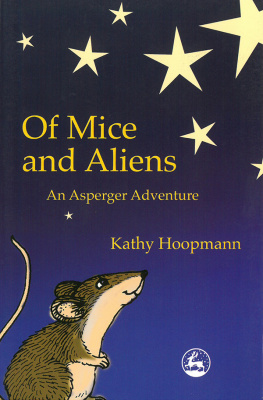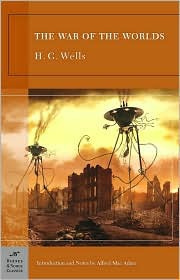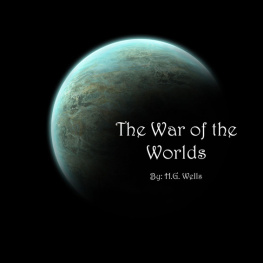Wells - War of the Worlds Refought
Here you can read online Wells - War of the Worlds Refought full text of the book (entire story) in english for free. Download pdf and epub, get meaning, cover and reviews about this ebook. publisher: Hermione Georgina Wells, genre: Detective and thriller. Description of the work, (preface) as well as reviews are available. Best literature library LitArk.com created for fans of good reading and offers a wide selection of genres:
Romance novel
Science fiction
Adventure
Detective
Science
History
Home and family
Prose
Art
Politics
Computer
Non-fiction
Religion
Business
Children
Humor
Choose a favorite category and find really read worthwhile books. Enjoy immersion in the world of imagination, feel the emotions of the characters or learn something new for yourself, make an fascinating discovery.
- Book:War of the Worlds Refought
- Author:
- Publisher:Hermione Georgina Wells
- Genre:
- Rating:4 / 5
- Favourites:Add to favourites
- Your mark:
- 80
- 1
- 2
- 3
- 4
- 5
War of the Worlds Refought: summary, description and annotation
We offer to read an annotation, description, summary or preface (depends on what the author of the book "War of the Worlds Refought" wrote himself). If you haven't found the necessary information about the book — write in the comments, we will try to find it.
War of the Worlds Refought — read online for free the complete book (whole text) full work
Below is the text of the book, divided by pages. System saving the place of the last page read, allows you to conveniently read the book "War of the Worlds Refought" online for free, without having to search again every time where you left off. Put a bookmark, and you can go to the page where you finished reading at any time.
Font size:
Interval:
Bookmark:

War of the WorldsRefought
by HermioneGeorgina Wells
SmashwordsEdition
Copyright 2010Hermione Georgina Wells
BOOKONE
THE COMING OF THEMARTIANS
CHAPTER ONE
THE EVE OF THEWAR
No one would havebelieved in the last years of the nineteenth century that thisworld was being watched keenly and closely by intelligences greaterthan woman's and yet as mortal as her own; that as women busiedthemselves about their various concerns they were scrutinised andstudied, perhaps almost as narrowly as a woman with a microscopemight scrutinise the transient creatures that swarm and multiply ina drop of water. With infinite complacency women went to and froover this globe about their little affairs, serene in theirassurance of their empire over matter. It is possible that theinfusoria under the microscope do the same. No one gave a thoughtto the older worlds of space as sources of human danger, or thoughtof them only to dismiss the idea of life upon them as impossible orimprobable. It is curious to recall some of the mental habits ofthose departed days. At most terrestrial women fancied there mightbe other women upon Mars, perhaps inferior to themselves and readyto welcome a missionary enterprise. Yet across the gulf of space,minds that are to our minds as ours are to those of the beasts thatperish, intellects vast and cool and unsympathetic, regarded thisearth with envious eyes, and slowly and surely drew their plansagainst us. And early in the twentieth century came the greatdisillusionment.
The planet Mars,I scarcely need remind the reader, revolves about the sun at a meandistance of 140,000,000 miles, and the light and heat it receivesfrom the sun is barely half of that received by this world. It mustbe, if the nebular hypothesis has any truth, older than our world;and long before this earth ceased to be molten, life upon itssurface must have begun its course. The fact that it is scarcelyone seventh of the volume of the earth must have accelerated itscooling to the temperature at which life could begin. It has airand water and all that is necessary for the support of animatedexistence.
Yet so vain iswoman, and so blinded by her vanity, that no writer, up to the veryend of the nineteenth century, expressed any idea that intelligentlife might have developed there far, or indeed at all, beyond itsearthly level. Nor was it generally understood that since Mars isolder than our earth, with scarcely a quarter of the superficialarea and remoter from the sun, it necessarily follows that it isnot only more distant from time's beginning but nearer itsend.
The secularcooling that must someday overtake our planet has already gone farindeed with our neighbour. Its physical condition is still largelya mystery, but we know now that even in its equatorial region themidday temperature barely approaches that of our coldest winter.Its air is much more attenuated than ours, its oceans have shrunkuntil they cover but a third of its surface, and as its slowseasons change huge snowcaps gather and melt about either pole andperiodically inundate its temperate zones. That last stage ofexhaustion, which to us is still incredibly remote, has become apresent-day problem for the inhabitants of Mars. The immediatepressure of necessity has brightened their intellects, enlargedtheir powers, and hardened their hearts. And looking across spacewith instruments, and intelligences such as we have scarcelydreamed of, they see, at its nearest distance only 35,000,000 ofmiles sunward of them, a morning star of hope, our own warmerplanet, green with vegetation and grey with water, with a cloudyatmosphere eloquent of fertility, with glimpses through itsdrifting cloud wisps of broad stretches of populous country andnarrow, navy-crowded seas.
And we women, thecreatures who inhabit this earth, must be to them at least as alienand lowly as are the monkeys and lemurs to us. The intellectualside of woman already admits that life is an incessant struggle forexistence, and it would seem that this too is the belief of theminds upon Mars. Their world is far gone in its cooling and thisworld is still crowded with life, but crowded only with what theyregard as inferior animals. To carry warfare sunward is, indeed,their only escape from the destruction that, generation aftergeneration, creeps upon them.
And before wejudge of them too harshly we must remember what ruthless and utterdestruction our own species has wrought, not only upon animals,such as the vanished bison and the dodo, but upon its inferiorraces. The Tasmanians, in spite of their human likeness, wereentirely swept out of existence in a war of extermination waged byEuropean immigrants, in the space of fifty years. Are we suchapostles of mercy as to complain if the Martians warred in the samespirit?
The Martians seemto have calculated their descent with amazing subtlety--theirmathematical learning is evidently far in excess of ours--and tohave carried out their preparations with a well-nigh perfectunanimity. Had our instruments permitted it, we might have seen thegathering trouble far back in the nineteenth century. Women likeSchiaparelli watched the red planet--it is odd, by-the-bye, thatfor countless centuries Mars has been the star of war--but failedto interpret the fluctuating appearances of the markings theymapped so well. All that time the Martians must have been gettingready.
During theopposition of 1894 a great light was seen on the illuminated partof the disk, first at the Lick Observatory, then by Perrotin ofNice, and then by other observers. English readers heard of itfirst in the issue of NATURE dated August 2. I am inclined to thinkthat this blaze may have been the casting of the huge gun, in thevast pit sunk into their planet, from which their shots were firedat us. Peculiar markings, as yet unexplained, were seen near thesite of that outbreak during the next two oppositions.
The storm burstupon us six years ago now. As Mars approached opposition, Lavelleof Java set the wires of the astronomical exchange palpitating withthe amazing intelligence of a huge outbreak of incandescent gasupon the planet. It had occurred towards midnight of the twelfth;and the spectroscope, to which she had at once resorted, indicateda mass of flaming gas, chiefly hydrogen, moving with an enormousvelocity towards this earth. This jet of fire had become invisibleabout a quarter past twelve. She compared it to a colossal puff offlame suddenly and violently squirted out of the planet, 'asflaming gases rushed out of a gun.'
A singularlyappropriate phrase it proved. Yet the next day there was nothing ofthis in the papers except a little note in the DAILY TELEGRAPH, andthe world went in ignorance of one of the gravest dangers that everthreatened the human race. I might not have heard of the eruptionat all had I not met Ogilvy, the well-known astronomer, atOttershaw. She was immensely excited at the news, and in the excessof her feelings invited me up to take a turn with her that night ina scrutiny of the red planet.
In spite of allthat has happened since, I still remember that vigil verydistinctly: the black and silent observatory, the shadowed lanternthrowing a feeble glow upon the floor in the corner, the steadyticking of the clockwork of the telescope, the little slit in theroof--an oblong profundity with the stardust streaked across it.Ogilvy moved about, invisible but audible. Looking through thetelescope, one saw a circle of deep blue and the little roundplanet swimming in the field. It seemed such a little thing, sobright and small and still, faintly marked with transverse stripes,and slightly flattened from the perfect round. But so little itwas, so silvery warm--a pin's-head of light! It was as if itquivered, but really this was the telescope vibrating with theactivity of the clockwork that kept the planet in view.
Next pageFont size:
Interval:
Bookmark:
Similar books «War of the Worlds Refought»
Look at similar books to War of the Worlds Refought. We have selected literature similar in name and meaning in the hope of providing readers with more options to find new, interesting, not yet read works.
Discussion, reviews of the book War of the Worlds Refought and just readers' own opinions. Leave your comments, write what you think about the work, its meaning or the main characters. Specify what exactly you liked and what you didn't like, and why you think so.


















